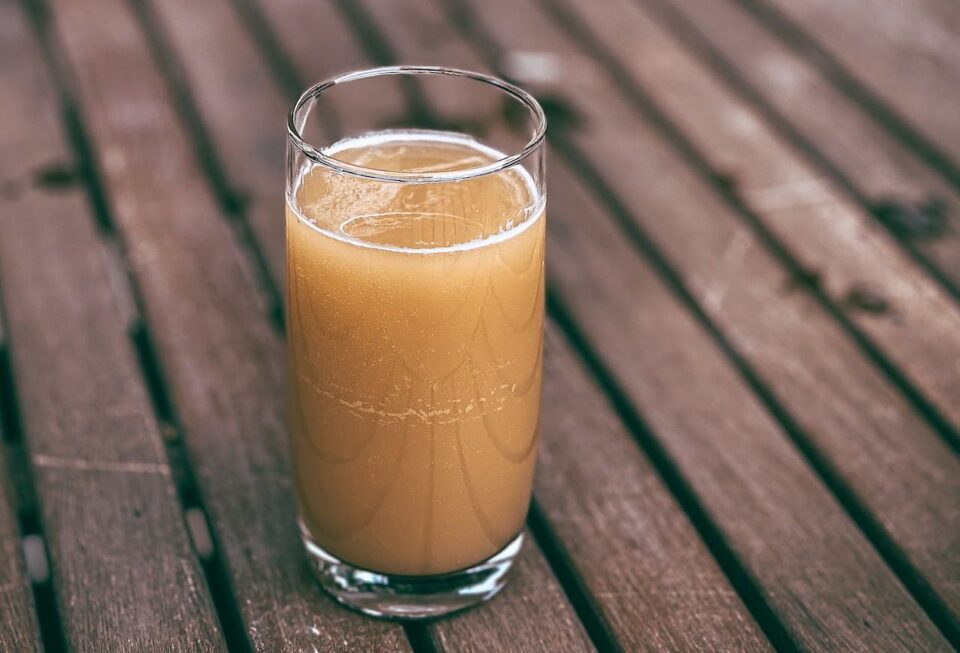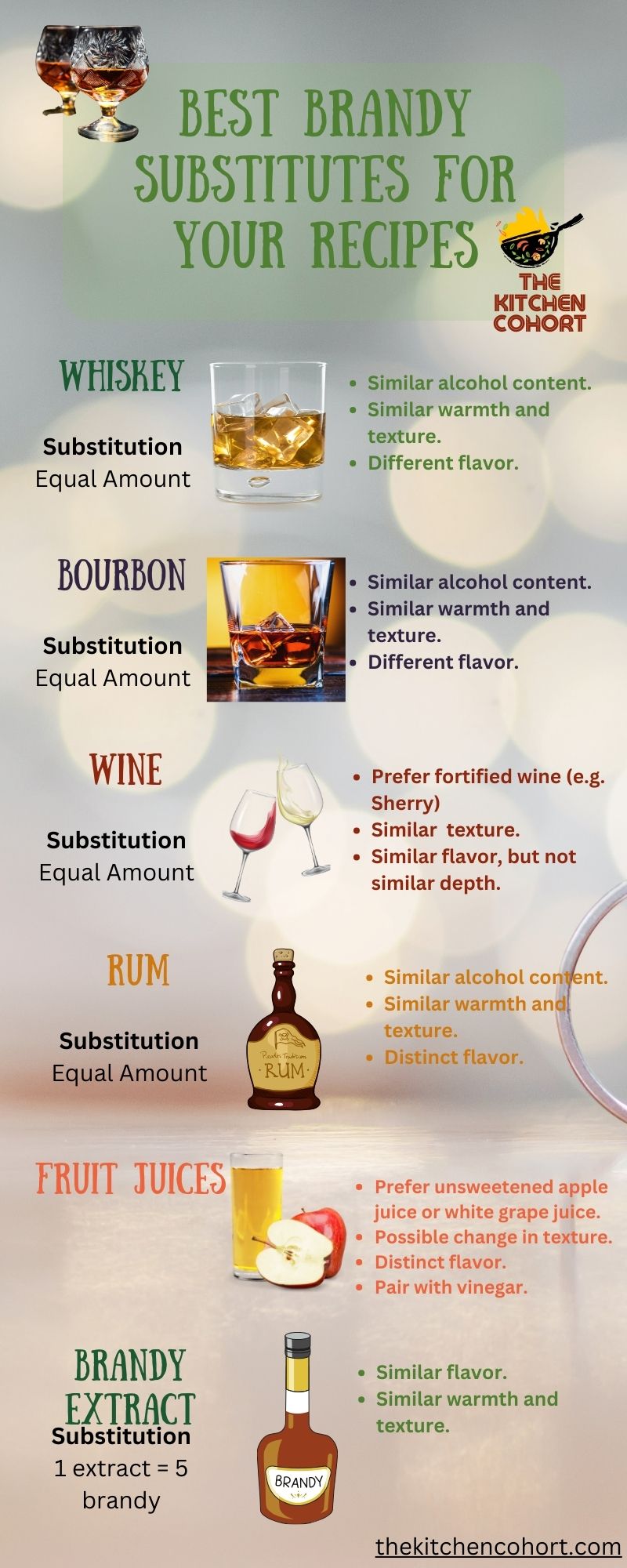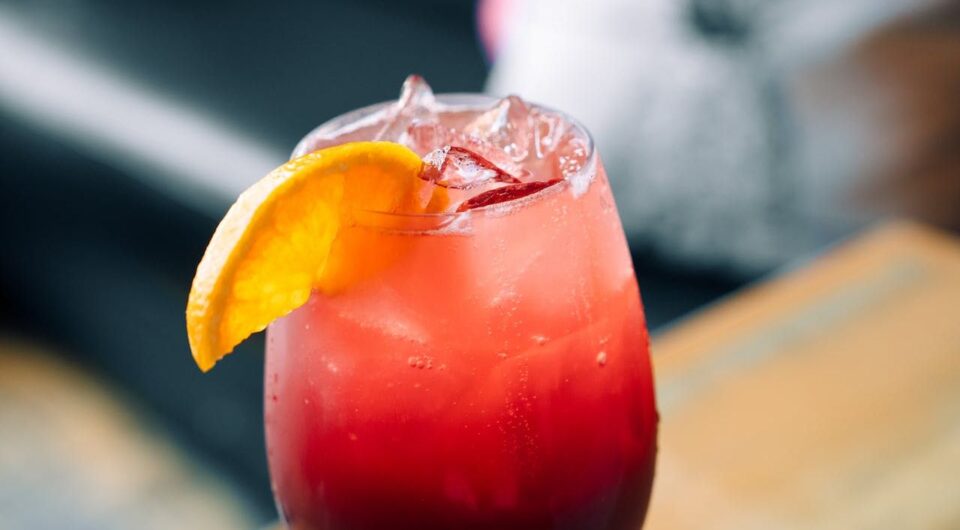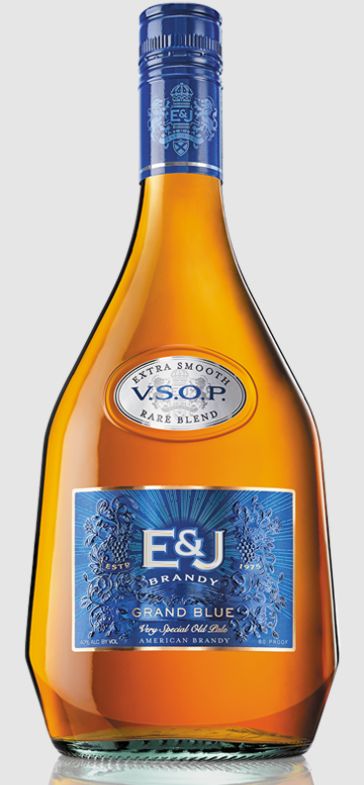Choosing the right brandy substitutes can be a joy for your tastebuds and act as a savior for your recipe. While brandy is somewhat popular as a drink on its own, it’s also an ingredient in several cooking recipes, cocktails, and in baking.
As such, your choice of substitute will also depend on the type of recipe, your dietary preferences, and other considerations. A substitute won’t exactly replicate the unique flavor brandy brings to traditional recipes, but the right choice will get you pretty close. In some cases, it might even be better!
So, let’s get into the details with the substitutes first, and then a discussion on the characteristics of brandy in its culinary uses.
Best Substitutes For Brandy In Your Cooking
1. Whiskey

Spelled as whiskey or whisky, this famous liquor can be a good substitute for brandy in your cooking needs. Whiskey has a different taste and texture when compared to brandy.
It brings a stronger, deeper taste, and doesn’t carry the hints of fruitiness that characterize brandy. In some cases, the stronger touch of whiskey might even be preferable.
Whiskey might also have a higher amount of alcohol, but the difference is usually small enough to not affect the recipe. Plus, there’s quite a variety of whiskeys to choose from, so getting your desired flavor might be relatively easier.
Generally, whiskey substitutes brandy in an equal ratio (1 spoon brandy = 1 spoon whiskey).
2. Bourbon
Since bourbon is a type of whiskey, it’s only natural that it works as a substitute for brandy the same way that whiskey does. Bourbon is made in the USA and distilled from at least 51% corn. However, when used for cooking, it works with a different texture as compared to whiskey and brandy.
Using bourbon will result in a somewhat smokier, earthier, and a tad sweeter. That works well as far as substituting for brandy in cooking goes.
Bourbon can substitute brandy in an equal ratio.
3. Wine

Brandy is distilled from wine. It gets a stronger flavor and higher alcohol content, but its proverbial roots still belong to wine. Wine also brings in that nice fruity taste that brandy adds to cooking. However, wine doesn’t have nearly the same alcohol content as brandy.
Besides, if you choose to go with wine as a substitute for brandy, there are a few more things to consider. The choice of wine can affect not just the taste, but also the color of your food. This is especially true for red wine. White wine has a similar effect but doesn’t affect the color.
Other wines can be fruity or overly sweet and will require tempering the flavor with some vinegar or a few drops of lemon juice.
Choosing to go with dry wine or fortified wine as a brandy substitute might be the smarter option. Wines like sherry, marsala, or tawdry port might be more desirable.
In most cases, the substitution ratio is 4:1, which means you add four spoons of wine for every spoon of brandy. Of course, this can easily vary to suit your preferences.
Dealing With Wine Colors And Some Baking And Cooking Tips
Also, if color is a concern, red wine or port can replace aged brandy. If the recipe calls for light brandy, something like white wine or vermouth should do. Again, this is all more about the color. The closest in flavor would be dry wines.
If you’re using wine as a brandy substitute in baking, you can add the desired amount to the recipe. Since the wine content is four times that of brandy, you might want to adjust the liquid (or water) quantity used for the baking recipe.
The same theory works for cooking and marinades as well. Although, in this case, some people choose to get a more concentrated flavor by reducing the wine. Reducing involves putting the wine on low heat in a pot, until some alcohol and water evaporate, leaving a more concentrated liquid.
Keep in mind that reducing wine is often a personal choice for the recipe and may not necessarily be required.
4. Cognac
Technically speaking, cognac is brandy. To be qualified for the name Cognac, the liquor must be made in the Cognac region of Southwest France and often follows the traditional recipe.
I’m not a fan of this option. Much of the finer flavors of cognac get destroyed during cooking. It is also significantly more expensive than brandy and other options on this list. Plus, the substitutes might work as well, if not better than brandy (or cognac).
While this is included in the list for the sake of being thorough, I wouldn’t recommend using cognac as a brandy substitute unless you absolutely must make this choice.
Since cognac is brandy, you can treat it the same as brandy for cooking and substitution.
5. Rum
Rum might be liked as a liquor, but it’s quite a favorite in many cooking and baking recipes. The deep molasses flavor it brings to the table is very much liked and sought after. Well, my opinion might be colored by my own partiality to rum’s flavors.
Apart from that deep molasses flavor, rum also brings a touch of sweetness to the recipe. Using rum in place of brandy will result in a change in the flavor of the food, especially if brandy is supposed to carry some flavor for the original recipe.
As already noted, I find rum’s flavor to be quite satisfying and enjoyable. But not all recipes or tastebuds would agree with that approach, so it might be necessary to dilute rum’s flavors.
If it’s desirable to alter the depth of rum’s flavor in the recipe, it might be worth looking at different types of rum. Dark rum is the most common and has that deep flavor that we all know. Light rum is somewhat lighter with the flavor.
You can also dilute the rum with water, to make the flavor less pronounced.
Generally, rum can replace brandy in an equal proportion.
6. Fruit Juices – Best Non-Alcoholic Brandy Substitute

Whether it’s dietary preferences, availability, or anything else, there might be situations where you want the prepared food to be alcohol-free. Most brandy substitutes contain alcohol, so working with something like fruit juices could do the trick for a non-alcoholic option.
But there’s more to consider here since fruit juices can be very sweet. Besides, not all fruit juices can work as effective brandy substitutes.
Another aspect here is quantity and flavor. If the recipes require brandy in small amounts, using an equal amount of juice will do the trick.
Where the recipe demands a larger quantity, the sweetness of fruit juice will require some adjustments. For some recipes, adding a small amount of water to dilute the juice will do.
For others, where managing the sweetness is important, adding a touch of vinegar will be useful. Choosing a delicate vinegar, like white wine vinegar might be the answer.
Here are a few options to consider.
Apple Juice Or Apple Cider
A good quality apple juice, unsweetened and unflavored can be a decent choice as a brandy substitute. It’s versatile and useful, especially for sauces, marinades, and baking. The sweetness of apples goes well with these recipes. It’s best to avoid anything too sweet.
Apple Cider might work too, though keep an eye on the sweetness. Using hard cider is a good option, but then your recipe won’t be strictly alcohol-free.
As for flavoring, the presence of alcohol in the cider won’t make much of a difference, but the reduced sweetness can be desirable.
White Grape Juice
White grape juice is another fruity and flavorful alternative to brandy in several recipes. Again, this works great for baked goods, sauces, and marinades. Your choice of juice should be unflavored and unsweetened.
7. Brandy Extract
Many people assume brandy extract to be free of alcohol. This is a misconception, as most brandy extracts will contain some alcohol. Brandy extract isn’t the same as brandy and has significantly less alcohol, but it does contain alcohol.
Some options are alcohol-free, but you’ll have to specifically look for them rather than assuming that the extract is non-alcoholic.
Brandy extract is highly concentrated and typically needs the addition of water to get to the right concentration. The exact amount can vary by brand and preparation.
Although generally speaking, 1 teaspoon of brandy extract equals 5 teaspoons of brandy.
8. Vinegar
Vinegar can be used as a substitute for some savory recipes that involve brandy, but not usually for those that involve baking. The sharp flavor and acidic profile of vinegar doesn’t really provide a good substitute for brandy.
So, it’s important to carefully choose the type of vinegar and find a way to manage its taste. Using white vinegar, apple cider vinegar, or similar options won’t work because of their pronounced flavor. Instead, choose something like red wine vinegar, white wine vinegar, or similar options.
It will be desirable to offset the taste of vinegar with options like fruit juice or extracts. But watch out for that acidity for best results.
9. Other Options: Vodka, Tequila, Gin

In some cases, it might be possible to use vodka, tequila, or gin as substitutes for brandy. None of these should be your first choice, but they can come in handy in a pinch. Additionally, all of these have their own idiosyncrasies and touches that need to be considered.
Vodka
Vodka will offer some changes to texture and some flavor, but it doesn’t offer nearly the same depth of flavor or nuance as brandy.
Tequila
Tequila cannot work with all recipes and its deep agave flavor is very different from brandy. If you must use tequila, use a high-quality option that will offer some smoothness and texture.
Gin
Gin has a similar approach, where its hints of bitterness don’t really match with the sweetness of brandy. When considering gin as a substitute, some experimentation might be necessary.
10. Use Water Or Skip It
Can’t get your hands on a suitable substitute for brandy? In many recipes, it might be possible to skip it altogether, especially where the quantity desired is low. In such cases, brandy might be an additional flavor rather than a key element of the recipe.
When skipping brandy from a recipe, you may want to compensate for the liquid used in the recipe. Adding water can be enough for such a scenario.

Choosing The Right Brandy Substitutes With An Understanding Of Flavoring And Profile
Let’s get a better understanding of the flavors and profile of brandy, so as to get a better idea of what substitutes to use.
As we know, brandy is a liquor produced from distilling wine. Occasionally, it might be made using fermented fruit as well. Some higher-quality brandy undergoes aging in oak casks for at least two years before being sold.
The production method can depend on the intent of the manufacturer or even the region. For example, brandy produced in the Cognac region of France must use some specific ingredients and undergo aging to qualify for the name “cognac.” Another famous variety is armagnac.
Let’s take a look at some aspects of the drink and see how it affects our choice of substitute.
The Flavor Of Brandy
Since it is made using wine (or fruits) brandy offers a touch of sweetness in its flavor. The rich and fruity flavors often are more talked about, though brandy can have quite a nuanced and complex flavor. It’s also known for its warmth of flavor.
Given these characteristics, a substitute has a lot to accomplish. Liquors like whiskey, bourbon, or rum can offer a similar warmth and depth of flavor, though they can’t offer a similar sweetness.
The recipes where sweetness and tang of brandy are the highlights can work with fortified wines like sherry or marsala. Red wines or white wine might also be used, but they can be too sweet and without the accompanying warmth or nuance of brandy.
Those looking for an alcohol-free option can choose to work with a juice like apple juice or white grape juice. And while these provide the fruity sweetness, it is desirable to add a delicate vinegar for the tang and depth of flavor.
Dealing With The Alcohol Content
A brandy can have anywhere between 35-60% alcohol. Depending on the recipe, the alcohol works as a way to carry and enhance flavors, tenderize meat, concentrate flavors, add texture, and similar applications.
In recipes where cooking and/or reducing is involved, a lot of alcohol will evaporate during the process. It might not be zero, but it will be minimal.
For recipes where presence of alcohol is important, the choices would be whiskey, rum, or bourbon. These liquors can have an alcohol content similar to brandy.
Those who want to go alcohol-free can choose fruit juices with vinegar, some brandy extracts, or non-alcoholic wines. While any substitution will affect the recipe in some way, this particular change will have a larger impact.
Dealing With The Price
When you choose a substitute, it should be affordable and available with relative ease. It wouldn’t do to use an option significantly more expensive than brandy, or one that’s difficult to find. There must be a balance.
For example, fruit juices can be easily available. But, the substitution requires apple juice or white grape juice without any sweeteners and additives. These might be tougher to get a hold of. Besides, they can struggle with providing the same depth of flavor.
Similarly, whiskey and rum can be relatively easy to buy and offer a good price and flavor comparison with brandy. That’s partly why they make such great brandy substitutes.
This factor is also why choosing something like Cognac or Armagnac is not desirable as a substitute. These options are significantly more expensive than conventional brandy and their nuanced flavors would be lost in the cooking process.
Use Of A Brandy Substitute – Recipes And General Discussion
Substitute For Brandy In Sangria

Sangria, the famous cocktail does benefit with the addition of brandy to enhance flavors and add a bit of a punch. While brandy makes a good contribution to the cocktail, it isn’t the heart of the recipe, so substitution can be easier.
If you’re passionate about the sangria, adding some cognac to replace brandy can be a huge plus. Cognac is the same as brandy, but with a more nuanced flavor (and a higher price tag).
Using a fortified wine like sherry can work as well. If you want some sweetness, liqueurs like Grand Marnier and Triple Sec can be a nice touch for sangria.
If nothing catches your attention, it should be okay to skip brandy from this cocktail.
Substituting Brandy In Cake Or Fruitcake
Brandy’s inherent fruitiness brings out the flavors quite fantastically in baked goods like cake or fruitcake. Using rum or whiskey as the substitute will work remarkably well, with some flavor changes.
If you want to go entirely alcohol-free, consider unsweetened fruit juices like apple juice or white grape juice. When choosing this option, pay close attention to the amount of water for the recipe, so that the fruit cake doesn’t turn out soggy. Also, be prepared for likely changes in texture.
A Brandy Substitute For Beef Stroganoff
Sherry is the preferred substitute for brandy in beef stroganoff. In fact, many people prefer to use sherry over brandy for this recipe. Other options to consider are whiskey and bourbon.
That said, the use of various spices, herbs, and sauces for the recipe and the marinade will provide enough flavor that you can safely skip brandy from the recipe if the need arises.
What Is A Good Brandy For Cooking?

When choosing a brandy for cooking, straight up skip the cheap options. They taste bad and will make your food taste bad. Some cheaper brandies use added flavorings to overcome their shortcomings.
These may not be noticeable when you drink the liquor. However, these flavorings can become more concentrated during cooking and throw-off the intended taste of your recipe.
None of this is to say that you should use overly expensive brandy for cooking. You’ll need to strike the balance between the cost of the liquor and the quality you expect.
Some of our recommendations are E&J VSOP Grand Blue, DeVille brandy, and Christian Brothers Brandy.
When in doubt, you can also consider substitutes like whiskey and bourbon. Vodka with its more subtle flavors could be a good option too.
Brandy Substitute For Peppercorn Sauce (And Other Cooking Sauces)
There are several options to substitute brandy in a peppercorn sauce or cooking sauces in general.
If you want liquor in the sauce, choosing whiskey, bourbon, or even rum could be a good choice.
However, with cooking sauces, it is perfectly possible to skip alcohol, including brandy, and still manage a wonderful flavor. Just use a little bit of unsweetened juice – apple juice, white grape juice, and even peach juice can work. Add some beef stock or chicken stock with the juice to the recipe.
The juice provides a hint of sweetness to the sauce. Meanwhile, the stock provides a wonderful depth of flavor.
Can You Make French Onion Soup Without Brandy?
Brandy is the classic pairing for French Onion Soup. Some recipes even suggest using Cognac, and while its nuanced flavors might be appreciable, it might be too expensive a pick for little gain.
If you do intend to replace brandy in the soup, choosing a fortified wine is the way to go. Sherry is the best choice, though chardonnay and port wine will work too.
Doing A Brandy Substitution Right – Conclusion
With this comprehensive discussion on brandy substitutes, I think we have a good idea of what to choose as a substitute and deciding on the characteristics to best match the substitution. Any substitute will bring some change to the flavor.
Choosing the right substitute will maintain a minimum effect on the texture and preparation of the recipe. Some substitutes might even work better than the original recipe. Be careful to pair your substitutes right and you’ll have a wonderful dish to enjoy!

